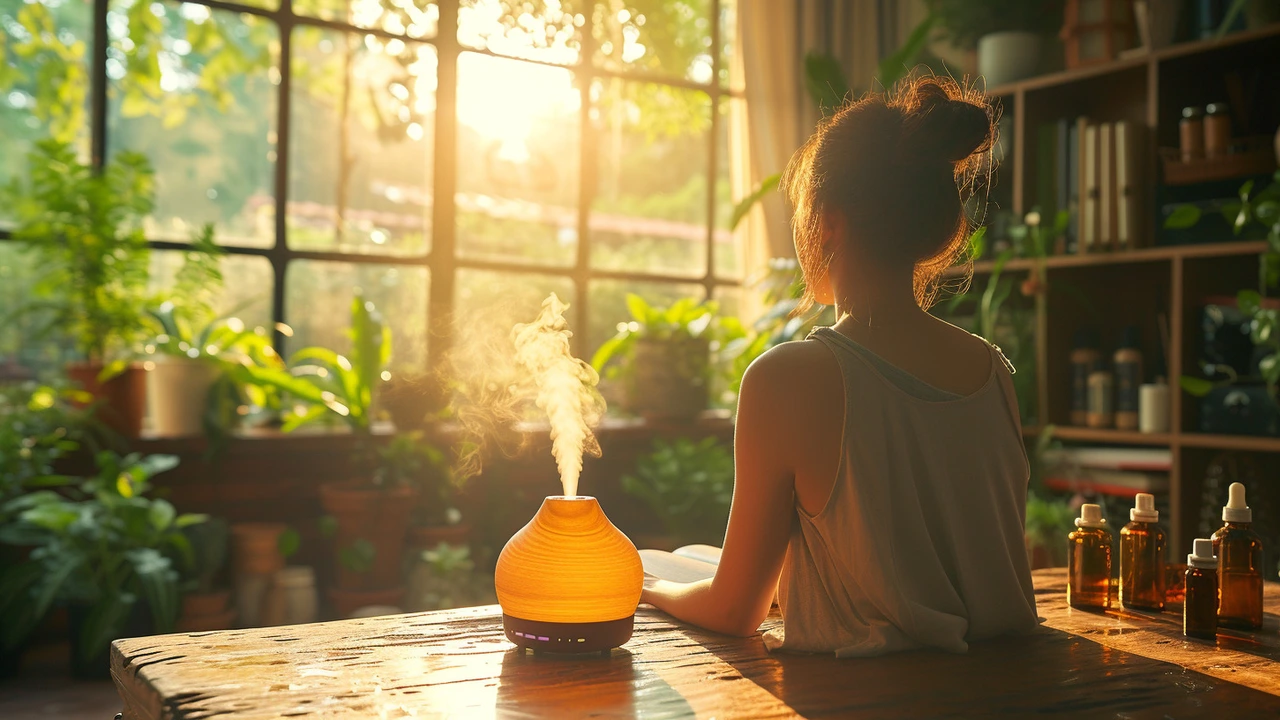The Mystical History of Aromatherapy
As we delve into the world of aromatherapy, it's critical to understand its deep-rooted history. This age-old practice isn't a fad that has sprung from the wellness trend; instead, it's an age-old science that has provided healing benefits for thousands of years. It all began with the ancient civilizations of Egypt, Greece, India, and Rome, where the therapeutic properties of certain plant extracts were cherished for their medicinal, cosmetic, and even religious value.
Interestingly enough, I came across an Egyptian hieroglyphic text from around 2,500 BCE, where at least 200 herbal remedies were mentioned. Fast forward to the present day, and a lot of these same remedies are found in the heart of aromatherapy! Can you imagine the surprise I felt when I found out that a sleep aid Emma uses, lavender oil, was also used by the Romans to promote relaxation and sleep?
A Step Inside The Science of Aromatherapy
At the heart of aromatherapy are essential oils - potent, concentrated extracts obtained from different parts of plants. Essential oils are what makes the juicy orange peel emit its citrusy aroma, the rose its sweet fragrance, and eucalyptus its penetrating cool scent. However, the olfactory bliss they provide is just the cherry on top. The real power of essential oils lies in their healing compounds, each possessing unique therapeutic properties.
Much like other wellness practices, aromatherapy operates on the principle of body-mind connection. When aromatic molecules enter our olfactory system, they trigger certain brain areas, particularly our limbic system, which is involved in emotion, mood, and memory regulation. Essentially, these fragrances manipulate our brain into a more relaxed or energized state, depending on the oil used.
Key Essential Oils and Their Benefits
Entering an essential oil shop can feel like being a kid in a candy store. The array of tiny bottles, each containing a different aromatic potion, can be overwhelming. The trick is to know the right oils and their associated benefits. Lavender is hailed for its calming effect and is even shown in scientific studies to improve sleep quality. Peppermint serves as a natural energy booster, perfect for those midday slumps. Eucalyptus, with its strong, minty aroma, is ideal for opening your sinuses and offering relief from seasonal allergies.
Then there's my personal favorite, the citrusy bergamot, known to combat stress and mild depression. One time, during a particularly stressful work week, Emma dimmed the lights, put on some soft instrumental music, and diffused bergamot oil in the room. It was as if the scent had magically evaporated my stress, leaving me feeling serene and positive.
Your Aromatherapy Starter Kit
The beauty of aromatherapy is that you can reap its benefits with just a few basics. First, of course, you'll need essential oils. One or two oils to start with, such as lavender and peppermint, should suffice. Next is a quality diffuser which breaks down essential oils to their most basic form and disperses them efficiently into the air. After these, a carrier oil, like jojoba or almond oil, will be useful in creating oil blends or for topical application. Lastly, a collection of roll-on bottles or inhaler tubes can be handy for on-the-go use.
Max and Bella, our house pets, were understandably confused at first with the new smells invading the house, but after a while, especially Bella, got used to the lavender oil diffusing at night. Be aware, not all essential oils are safe for pets, so do your research before diving in if you have furry companions at home.
DIY Aromatherapy Recipes
Aromatherapy offers a realm of experimentation possibilities. Emma, Lucas, Ava, and I have had a blast concocting our own personalized blends. Try diffusing three drops of lavender and two drops of chamomile for a peace-filled bedtime atmosphere. For a refreshing morning wake-me-up, mix four drops of grapefruit essential oil with two drops of peppermint in your diffuser.
When Lucas was prepping for his finals last year, a study blend of rosemary, peppermint, and lemon was his constant companion. Rosemary, by the way, was found in a study to boost alertness and improve long-term memory — perfect partner for those taxing study sessions!
Maintaining Safety With Aromatherapy
Despite its plethora of benefits, safety should be a priority when practicing aromatherapy. Essential oils, despite being natural, are incredibly potent substances. They should always be used in measured quantities and never ingested. Applying essential oils undiluted onto skin can also cause irritation or an allergic reaction. A dermatologist-approved patch test is prudent before trying a new oil topically.
In addition, keep in mind that aromatherapy complements conventional therapy, not replaces it. It's always a good idea, particularly when it involves children or pregnancy, to seek advice from a healthcare provider before starting aromatherapy.
Embracing Aromatherapy: A Journey Towards Wellness
Transitioning towards a more natural way of tending to our minds and bodies has been an enlightening journey for me. What started with a humble bottle of lavender oil has now evolved into a household affair, something that Emma, Lucas, Ava, and even Max and Bella have come to enjoy. It's a feeling of empowerment, to have an accessible and natural way of maintaining well-being in your own home.
Remember, aromatherapy is not just an occasional luxury, rather a lifestyle change. Incorporating small practices, such as diffusing oils during work or applying a lavender-infused lotion before bed, can have cumulative effects on your overall quality of life. It's about time we turned back towards nature, don't you think?
